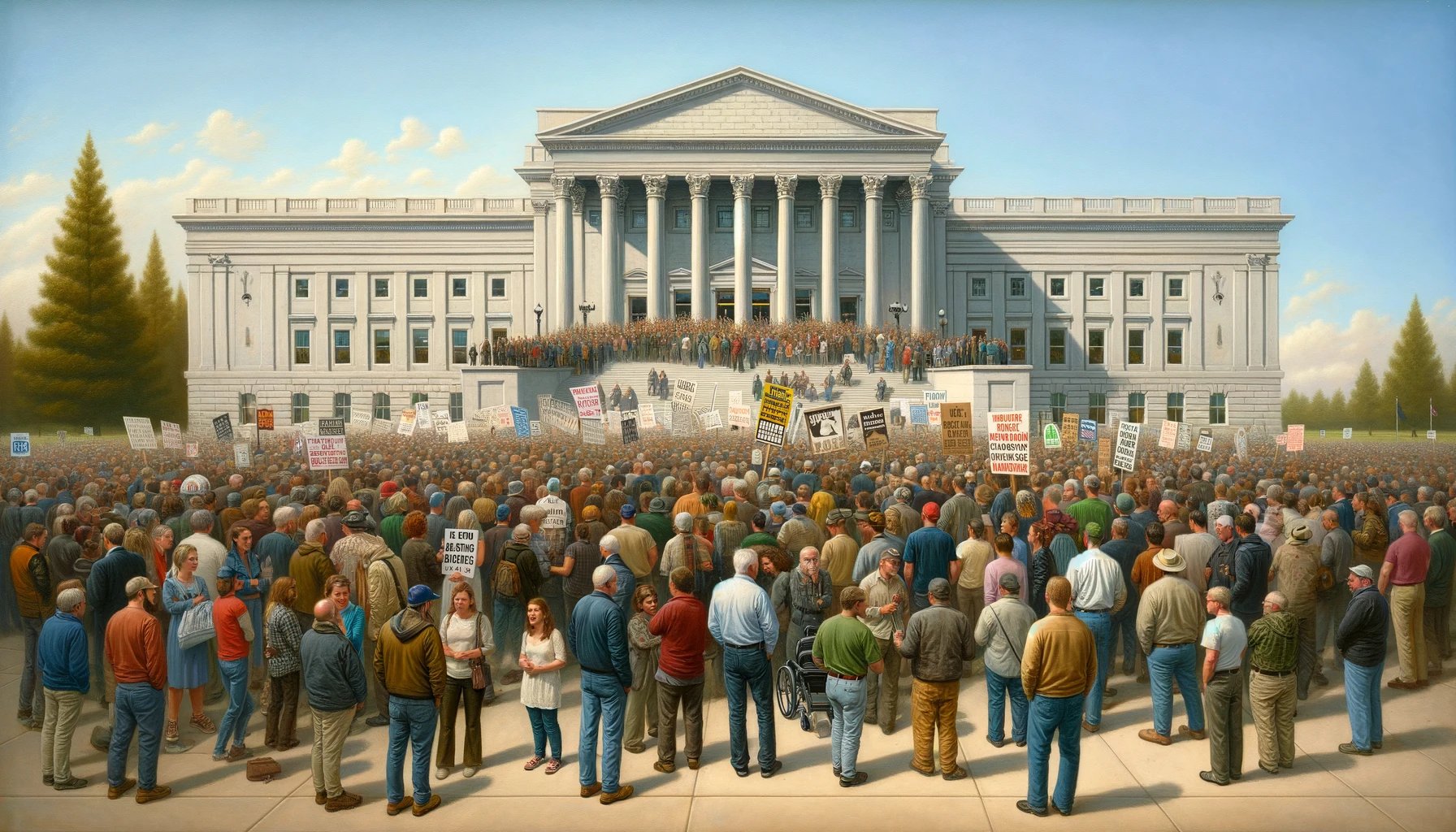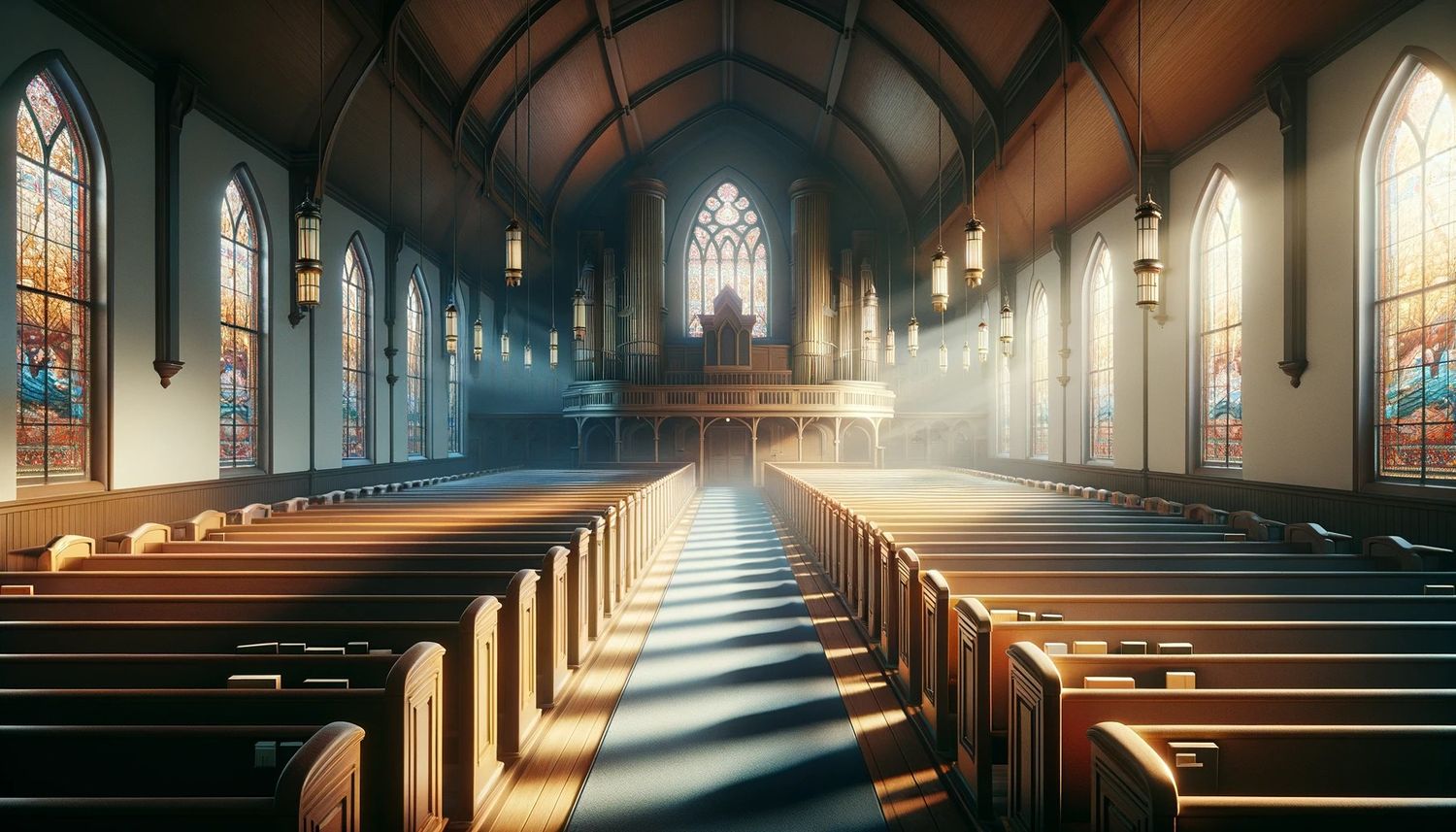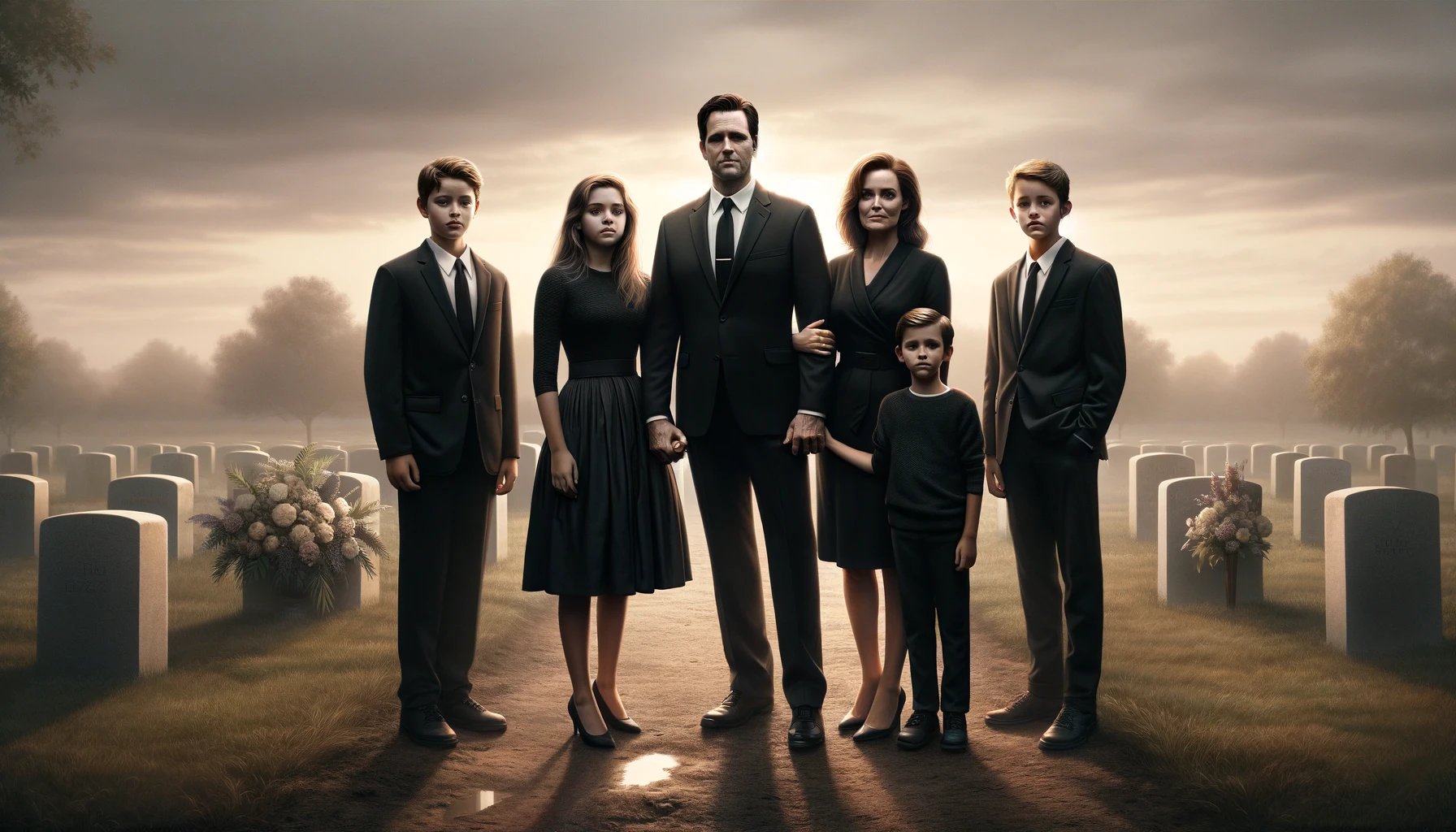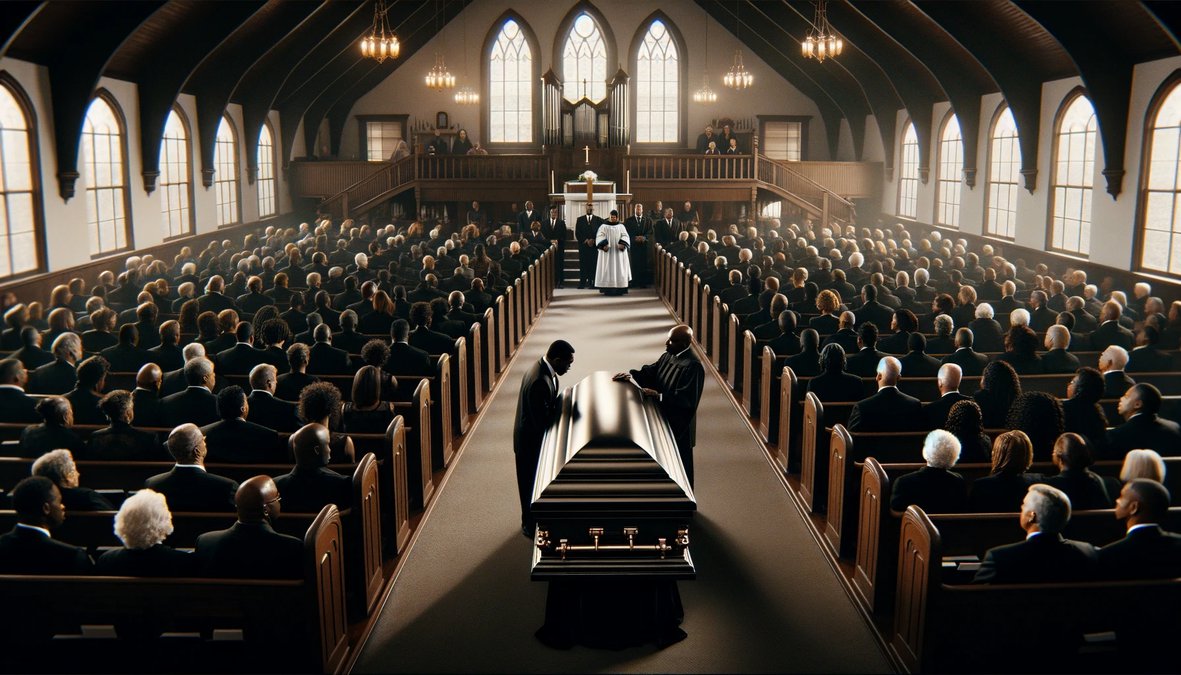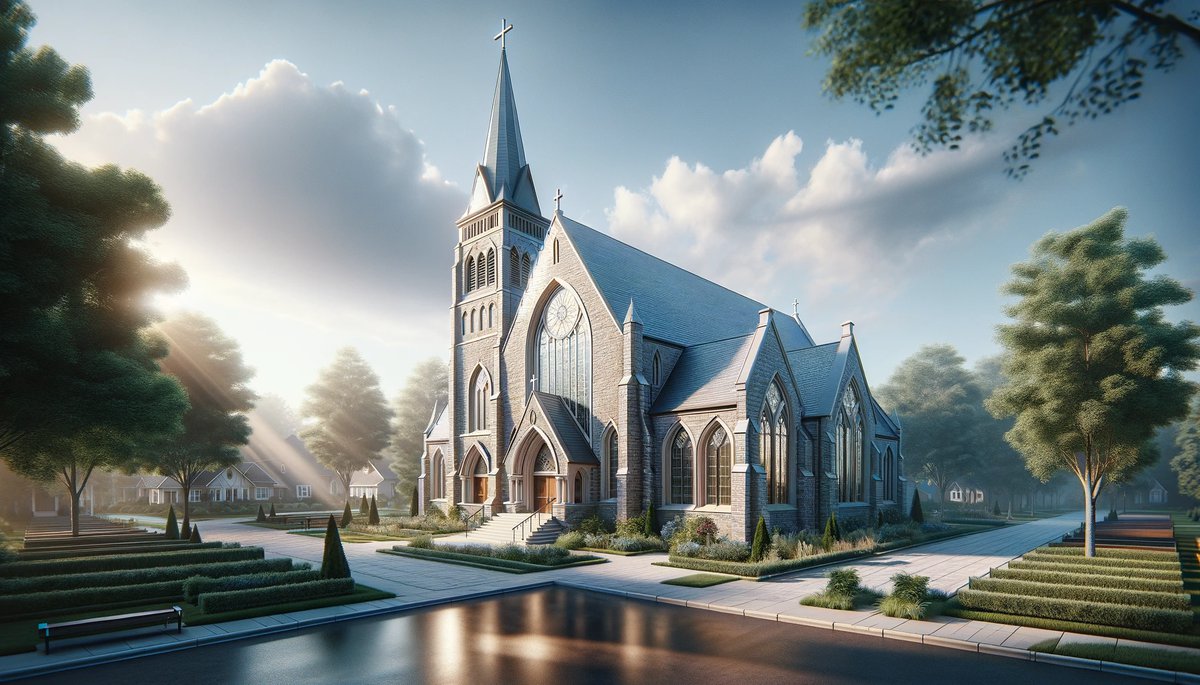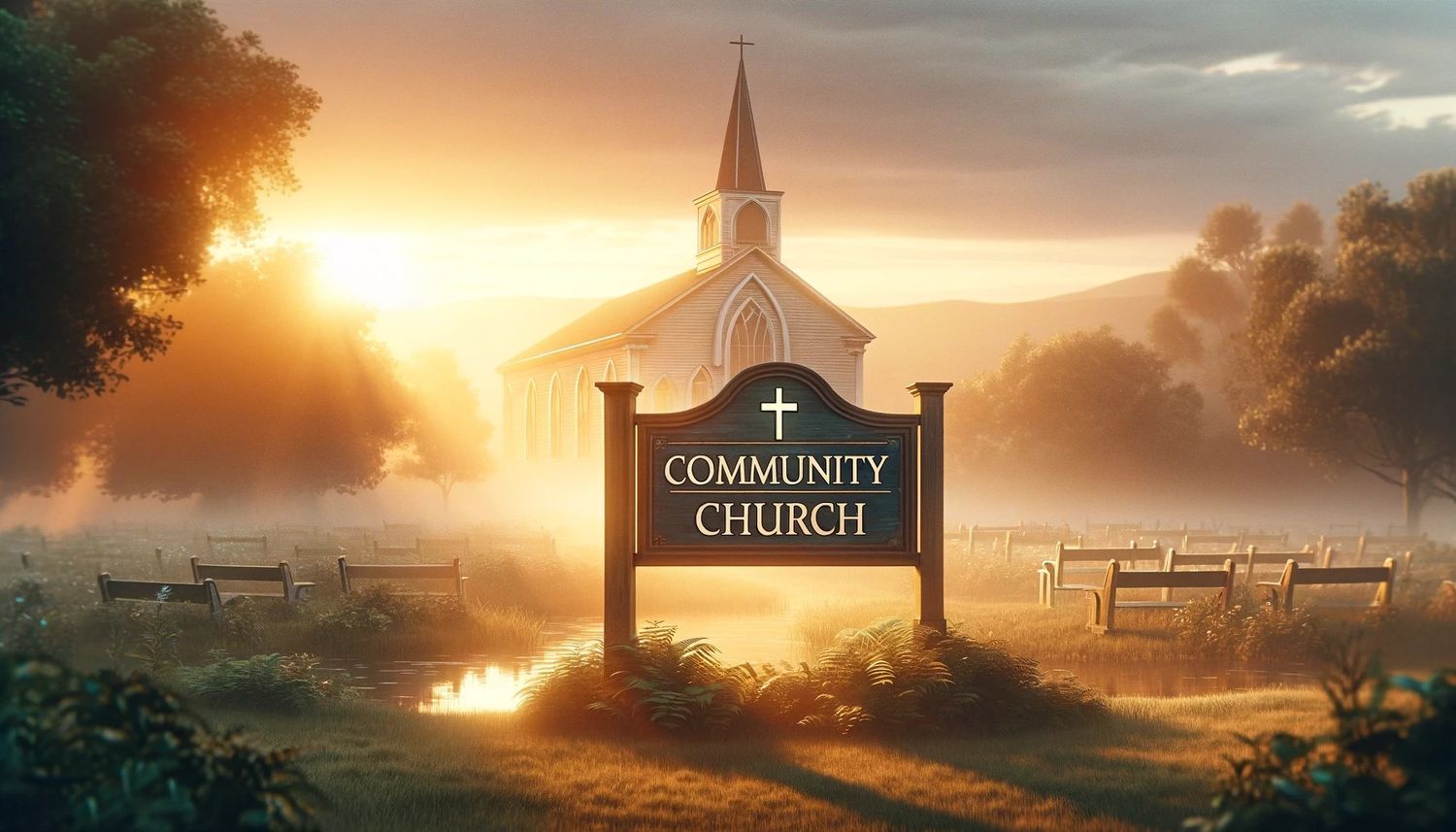Home>Theology and Spirituality>Why Is Westboro Baptist Church Protesting Funerals
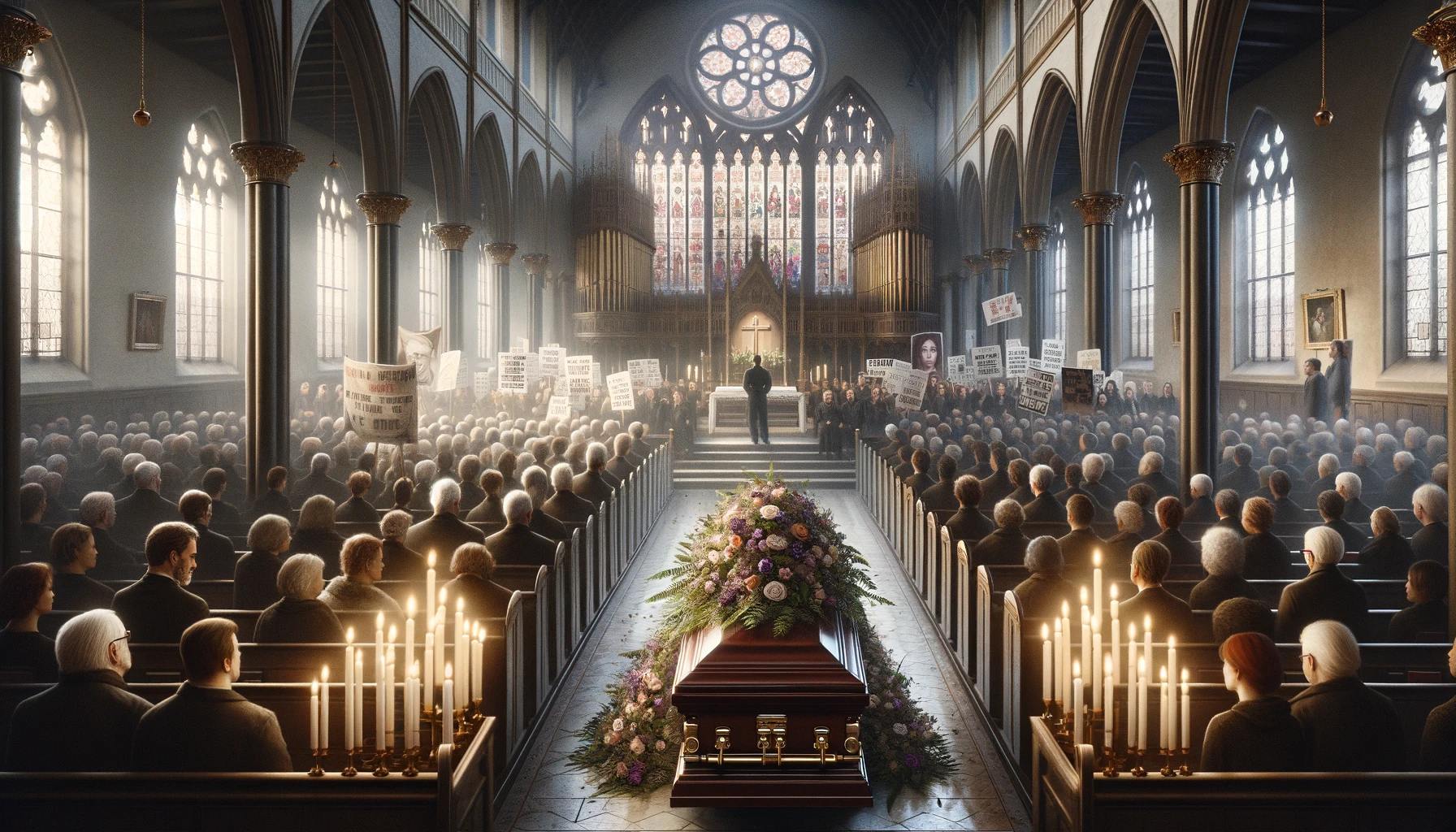

Theology and Spirituality
Why Is Westboro Baptist Church Protesting Funerals
Published: February 20, 2024
Peter Smith, Editorial Director at Christian.net, combines deep insights into faith, politics, and culture to lead content creation that resonates widely. Awarded for his contributions to religious discourse, he previously headed a major organization for religious communicators, enhancing dialogue on faith's societal impacts.
Discover why the Westboro Baptist Church protests funerals and the impact on theology and spirituality. Explore the controversial protests and their theological implications.
(Many of the links in this article redirect to a specific reviewed product. Your purchase of these products through affiliate links helps to generate commission for Christian.net, at no extra cost. Learn more)
Table of Contents
Introduction
The Westboro Baptist Church has gained notoriety for its controversial and highly publicized protests at funerals and public events. These demonstrations have sparked widespread outrage and debate, prompting many to question the motives and beliefs of this religious group. Understanding the history, beliefs, and practices of the Westboro Baptist Church is essential in comprehending the reasons behind their funeral protests and the impact they have had on society.
The Westboro Baptist Church, based in Topeka, Kansas, has garnered attention for its extreme and inflammatory rhetoric, particularly regarding issues such as homosexuality, military service, and the perceived moral decay of society. Led by the late Fred Phelps and later his daughter, Shirley Phelps-Roper, the church has become synonymous with provocative demonstrations and incendiary signs bearing slogans such as "God Hates Fags" and "Thank God for Dead Soldiers."
The group's actions have sparked intense backlash and legal challenges, leading to a polarizing reputation that has made it a lightning rod for controversy. The motivations behind the Westboro Baptist Church's protests are deeply rooted in their interpretation of scripture and their fervent belief in the righteousness of their cause. By delving into the history, beliefs, and impact of the Westboro Baptist Church, we can gain insight into the complex dynamics at play and the broader implications of their actions.
History of Westboro Baptist Church
The Westboro Baptist Church, founded in 1955 by Fred Phelps, began as a relatively mainstream organization. However, over time, the church underwent a radical transformation, embracing increasingly extreme and controversial beliefs. Fred Phelps, a disbarred lawyer, espoused a strict interpretation of Calvinist theology, emphasizing predestination and the sovereignty of God. This theological framework laid the groundwork for the church's uncompromising stance on moral issues and its confrontational approach to public discourse.
In the 1990s, the Westboro Baptist Church began its highly publicized campaign against homosexuality, attracting widespread attention and condemnation. The church's picketing of the funerals of AIDS victims and its vehement anti-LGBTQ+ rhetoric marked a significant turning point in its notoriety. This period saw the emergence of the infamous "God Hates Fags" slogan, which became emblematic of the church's incendiary messaging.
Under the leadership of Fred Phelps, the church's activities expanded to include protests at military funerals, denouncing the perceived moral failings of the United States and its military involvement. The provocative signs and inflammatory language employed by the church drew intense scrutiny and sparked legal battles over the limits of free speech and the rights of those targeted by the protests.
The church's activities have been met with widespread condemnation and have led to numerous legal challenges. Despite facing significant opposition and backlash, the Westboro Baptist Church has remained steadfast in its commitment to its beliefs and practices. The passing of Fred Phelps in 2014 did not diminish the church's resolve, as his daughter, Shirley Phelps-Roper, assumed a prominent leadership role, ensuring the continuity of the church's provocative demonstrations and controversial messaging.
The history of the Westboro Baptist Church is marked by a trajectory of increasing radicalization and notoriety. Its confrontational approach and inflammatory rhetoric have positioned the church at the center of contentious debates about free speech, religious extremism, and the boundaries of public discourse. Understanding this history is crucial in comprehending the motivations and impact of the church's actions, shedding light on the complex dynamics that have defined its trajectory.
Beliefs and Practices of Westboro Baptist Church
The Westboro Baptist Church is characterized by a set of beliefs and practices that distinguish it from mainstream Christian denominations. At the core of the church's theology is a strict adherence to Calvinist principles, emphasizing the sovereignty of God and the concept of predestination. This theological framework forms the basis for the church's uncompromising stance on moral issues and its confrontational approach to public engagement.
Central to the Westboro Baptist Church's beliefs is its vehement condemnation of homosexuality, which it views as a grave sin and a symbol of societal decay. The church's anti-LGBTQ+ rhetoric has been a defining feature of its public messaging, manifesting in provocative slogans such as "God Hates Fags" and "AIDS Cures Fags." This uncompromising stance on homosexuality has fueled the church's notoriety and elicited widespread condemnation.
In addition to its anti-LGBTQ+ stance, the Westboro Baptist Church espouses a fervent belief in the righteousness of its cause, viewing itself as a vanguard of divine truth in a morally compromised world. This self-perception underpins the church's confrontational and often inflammatory tactics, as it seeks to deliver its uncompromising message to a global audience.
The church's practices are characterized by provocative demonstrations, including picketing at funerals, public events, and military ceremonies. These actions are accompanied by incendiary signs bearing controversial slogans, which serve as a visual representation of the church's uncompromising beliefs. The confrontational nature of the church's protests has sparked intense backlash and legal challenges, leading to debates about the limits of free speech and the rights of those targeted by the demonstrations.
The Westboro Baptist Church's beliefs and practices have positioned it at the center of contentious debates about religious extremism, free speech, and the boundaries of public discourse. Its confrontational approach and inflammatory rhetoric have elicited widespread condemnation while also raising complex questions about the intersection of religious conviction and societal norms.
Understanding the beliefs and practices of the Westboro Baptist Church is essential in comprehending the motivations behind its actions and the broader implications of its confrontational tactics. By examining the theological underpinnings and public engagement strategies of the church, we can gain insight into the complex dynamics that have defined its trajectory and the impact it has had on public discourse and societal attitudes.
Reasons for Protesting Funerals
The Westboro Baptist Church's decision to protest funerals is rooted in its fervent belief in the righteousness of its cause and its uncompromising stance on moral issues. The church perceives funerals as opportunities to convey its message to a wide audience, leveraging the emotional weight of these events to amplify its controversial rhetoric. The following reasons shed light on the motivations behind the church's funeral protests:
-
Visibility and Media Attention: Funerals are inherently solemn and emotionally charged gatherings, drawing significant media coverage and public attention. The Westboro Baptist Church exploits this visibility to disseminate its provocative messaging, knowing that its demonstrations at funerals will attract widespread media coverage and spark public debate. By targeting high-profile funerals, including those of military service members and public figures, the church seeks to maximize its exposure and amplify its controversial message on a national and international scale.
-
Shock Value and Provocation: The church's protests at funerals are designed to shock and provoke, leveraging the emotional vulnerability of mourners to garner attention and elicit strong reactions. The use of inflammatory signs and incendiary slogans serves to amplify the shock value of the demonstrations, ensuring that the church's message is not only seen but also deeply felt. This deliberate strategy of provocation aims to generate widespread outrage and controversy, thereby amplifying the church's visibility and reinforcing its confrontational image.
-
Symbolic Condemnation: From the church's perspective, protesting at funerals symbolizes a form of divine condemnation, linking the deceased individual or their affiliations to perceived moral failings. Whether denouncing perceived support for LGBTQ+ rights or attributing national tragedies to divine retribution, the church uses funerals as platforms to convey its uncompromising condemnation, framing its protests as expressions of divine judgment and moral righteousness.
-
Legal Challenges and Public Discourse: The church's funeral protests have sparked legal battles and public discourse, raising complex questions about the limits of free speech, the rights of mourners, and the responsibilities of religious organizations. By engaging in highly visible and controversial demonstrations, the Westboro Baptist Church has catalyzed debates about the intersection of religious conviction, public decorum, and the emotional sanctity of funerals, further amplifying its impact on societal dialogue and legal precedent.
The Westboro Baptist Church's decision to protest funerals is deeply intertwined with its confrontational approach to public engagement and its fervent belief in the righteousness of its cause. By leveraging the emotional weight of funerals, the church seeks to maximize its visibility, provoke strong reactions, and convey its uncompromising message to a global audience, thereby reinforcing its confrontational image and amplifying its impact on public discourse and legal precedent.
Impact of Westboro Baptist Church's Protests
The protests orchestrated by the Westboro Baptist Church have reverberated across society, leaving a profound impact on various fronts. The confrontational and highly controversial nature of the church's demonstrations has elicited widespread outrage, sparked legal battles, and prompted soul-searching conversations about the boundaries of free speech and the emotional sanctity of funerals.
Read more: Why The Westboro Baptist Church Protests
Social and Emotional Impact
The church's protests at funerals have inflicted emotional distress on grieving families and mourners, disrupting the solemnity of these deeply personal events. The deliberate targeting of high-profile funerals, including those of military service members and public figures, has amplified the emotional toll, exacerbating the anguish of those already grappling with loss. The church's inflammatory signs and incendiary slogans have compounded the distress, igniting anger and sorrow within the communities directly affected by the protests.
Legal and Constitutional Implications
The Westboro Baptist Church's funeral protests have sparked legal challenges that have tested the boundaries of free speech and the rights of mourners. The Supreme Court's landmark ruling in Snyder v. Phelps affirmed the church's right to engage in peaceful public demonstrations, even in the emotionally charged context of funerals. This decision underscored the robust protections afforded to free speech under the First Amendment, setting a precedent that continues to shape legal interpretations of the delicate balance between free expression and the emotional well-being of individuals.
Public Discourse and Societal Reflection
The church's protests have catalyzed profound societal reflection, prompting individuals and communities to grapple with the complexities of free speech, religious extremism, and the ethical responsibilities inherent in public discourse. The confrontational tactics employed by the Westboro Baptist Church have forced society to confront uncomfortable questions about the limits of tolerance, the moral obligations of religious organizations, and the enduring tension between freedom of expression and the protection of individual dignity.
Media and Cultural Permeation
The church's demonstrations have permeated popular culture, becoming emblematic of the fraught intersection between religious conviction and public decorum. The media coverage and cultural representations of the church's protests have contributed to a broader conversation about the power of provocative messaging, the ethics of public spectacle, and the enduring impact of controversial actions on public consciousness.
The impact of the Westboro Baptist Church's protests extends far beyond the immediate contexts of the demonstrations, leaving an indelible mark on legal precedent, societal dialogue, and the emotional fabric of communities affected by its confrontational tactics. The enduring legacy of these protests underscores the complex interplay between free speech, emotional sanctity, and the enduring quest for societal harmony.
Responses to Westboro Baptist Church's Actions
The Westboro Baptist Church's provocative demonstrations have elicited a wide array of responses from various sectors of society, reflecting the profound impact of its actions on public discourse, legal precedent, and emotional well-being. These responses encompass a spectrum of reactions, ranging from legislative measures to grassroots counter-protests, each seeking to address the complex challenges posed by the church's confrontational tactics.
Legislative and Legal Measures
In response to the church's funeral protests, legislative efforts have emerged at both the state and federal levels, aiming to create buffer zones and restrictions around funerals to shield mourners from the disruptive impact of demonstrations. These measures, while seeking to uphold the sanctity of funerals, have encountered legal scrutiny, with courts navigating the delicate balance between free speech protections and the emotional well-being of those directly affected by the protests. The legal landscape continues to evolve as lawmakers and legal experts grapple with the enduring implications of the church's actions on constitutional rights and public decorum.
Community Solidarity and Counter-Protests
Communities targeted by the Westboro Baptist Church's demonstrations have often mobilized in solidarity, organizing counter-protests and creating human barriers to shield mourners from the church's inflammatory messaging. These grassroots efforts reflect a collective determination to uphold the dignity of funerals and provide solace to grieving families, countering the disruptive impact of the church's confrontational tactics with displays of compassion and unity. The resilience and solidarity exhibited by these communities underscore the enduring capacity for empathy and communal support in the face of provocation.
Media and Cultural Critique
The media and cultural spheres have responded to the church's actions with critical examination, engaging in nuanced discussions about the ethical responsibilities of media coverage and the enduring impact of provocative messaging on public consciousness. Journalistic practices and cultural representations of the church's protests have prompted introspection about the power of visual imagery and the ethical considerations inherent in amplifying controversial narratives. These responses have contributed to a broader conversation about the intersection of free speech, media ethics, and the enduring resonance of contentious actions in the public sphere.
Read more: What Religion Is The Westboro Baptist Church
Advocacy for Tolerance and Understanding
In the wake of the church's demonstrations, advocacy efforts promoting tolerance, understanding, and dialogue have emerged, seeking to counter the divisive impact of the church's rhetoric with messages of inclusivity and compassion. These initiatives aim to foster constructive conversations about the complexities of religious conviction, free speech, and the ethical responsibilities inherent in public discourse. By promoting empathy and understanding, these responses endeavor to mitigate the polarizing effects of the church's confrontational tactics and cultivate a more harmonious societal fabric.
The diverse responses to the Westboro Baptist Church's actions reflect the multifaceted impact of its confrontational demonstrations on legal, social, and cultural dimensions. These responses underscore the enduring complexities inherent in navigating the intersection of free speech, emotional sanctity, and the ethical responsibilities of public engagement, shaping ongoing conversations about the enduring quest for societal harmony and understanding.
Conclusion
The Westboro Baptist Church's contentious protests at funerals have ignited intense debates, elicited profound emotional responses, and left an indelible mark on legal precedent and societal discourse. The church's confrontational tactics, characterized by incendiary rhetoric and provocative demonstrations, have tested the boundaries of free speech, prompting soul-searching conversations about the delicate balance between expressive liberties and the emotional sanctity of public gatherings.
At the heart of the church's funeral protests lies a fervent belief in the righteousness of its cause and an unwavering commitment to conveying its uncompromising message to a global audience. By leveraging the emotional weight and visibility of funerals, the church has sought to amplify its controversial rhetoric, sparking widespread outrage and legal battles while permeating popular culture and public consciousness.
The impact of the Westboro Baptist Church's actions extends beyond the immediate contexts of its demonstrations, leaving a lasting imprint on legal interpretations, societal reflection, and the emotional fabric of communities affected by its confrontational tactics. The enduring legacy of these protests underscores the complex interplay between free speech, emotional sanctity, and the enduring quest for societal harmony.
As society continues to grapple with the enduring implications of the church's actions, the responses to its confrontational tactics reflect a collective determination to uphold the dignity of funerals, foster empathy and understanding, and navigate the complexities of free speech and public decorum. From legislative measures to grassroots solidarity and cultural critique, these responses embody the resilience and capacity for communal support in the face of provocation, shaping ongoing conversations about the enduring quest for societal harmony and understanding.
The Westboro Baptist Church's funeral protests stand as a poignant reminder of the enduring tensions between expressive liberties and the emotional well-being of individuals, prompting ongoing reflection about the ethical responsibilities inherent in public discourse and the enduring pursuit of societal cohesion. In navigating these complexities, society continues to grapple with the enduring impact of the church's actions, seeking to uphold the sanctity of public gatherings while fostering empathy, understanding, and a shared commitment to a more harmonious societal fabric.


